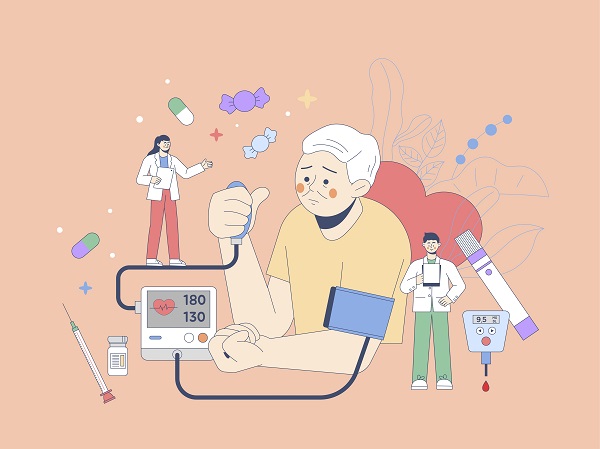
According to the 'Hypertension Fact Sheet 2023' recently released by the Korean Society of Hypertension, an estimated 12.3 million adults in South Korea are believed to be hypertensive patients. Recent upticks in patients in their 20s and 30s raised concerns among younger people. As we approach Hypertension Prevention and Management Week (the first week of December), let's dive into the misconceptions and truths about hypertension.
■ Do Blood Pressure Medications Affect Liver Enzymes?(△)
Every medication carries potential risks of liver damage. However, since hypertension medications require long-term usage, they undergo detailed verification for liver function abnormalities during development, resulting in a lower risk of liver damage compared to other medications.
Professor Jeong-Eun Lee from Catholic University's Eunpyeong St. Mary's Hospital Cardiovascular Department pointed out that "Most hypertensive patients often take multiple medications that might raise liver enzymes, so it's essential for the attending physician to render precise evaluations," urging not to discontinue medication without consulting the doctor.
■ Are There Resistance and Side Effects to Hypertension Medication?(△)
There's no reported resistance. Side effects may differ depending on the drug's mechanism but aren't substantially concerning. Professor Min-Jung Park from Samsung Medical Center's Cardiovascular Department mentioned that "Commonly prescribed medications like calcium channel blockers, angiotensin receptor blockers, and beta-blockers seldom cause edema, acute kidney injury, or orthostatic hypotension. However, discontinuing medication leads to improvement."
■ Should Middle-aged Women Be More Cautious?(O)
That's right. Decreased estrogen levels result in blood vessels constriction, which raises blood pressure. Professor Lee stated, "Weight gain after menopause, physical inactivity, and aging also contribute to increased blood pressure". Lee stressed the importance of healthier lifestyle to prevent obesity and metabolic syndrome, indicating that hormone therapy isn't necessary.
■ Is Blood Pressure Affected by Weather?(△)
Blood pressure typically rises in winter and decreases in summer, but these changes are not substantial, and blood pressure fluctuates throughout the day. Professor Hae-Young Lee from Seoul National University Hospital's Cardiovascular Department explained that "The fluctuation in blood pressure due to weather is approximately 3-5mmHg."
■ Should Heavy Weightlifting Be Avoided?(X)
That's a thing of the past. Professor Lee mentioned, "Moderate aerobic and strength training can lower blood pressure, so weight lifting is recommended." However, lifting heavy weights may cause a sudden increase in blood pressure. If blood pressure rises excessively after exercise, it's advisable to consult the doctor and consider changing the type and intensity of the workout.
■ Does Nasal Congestion Increase the Risk of Hypertension?(O)
Indeed. Particularly, severe nasal congestion contribution worsens hypertension. Professor Park emphasized, "When oxygen saturation drops during sleep, blood vessels constrict, leading to hypertension," highlighting the importance of diagnosing and managing sleep apnea.


